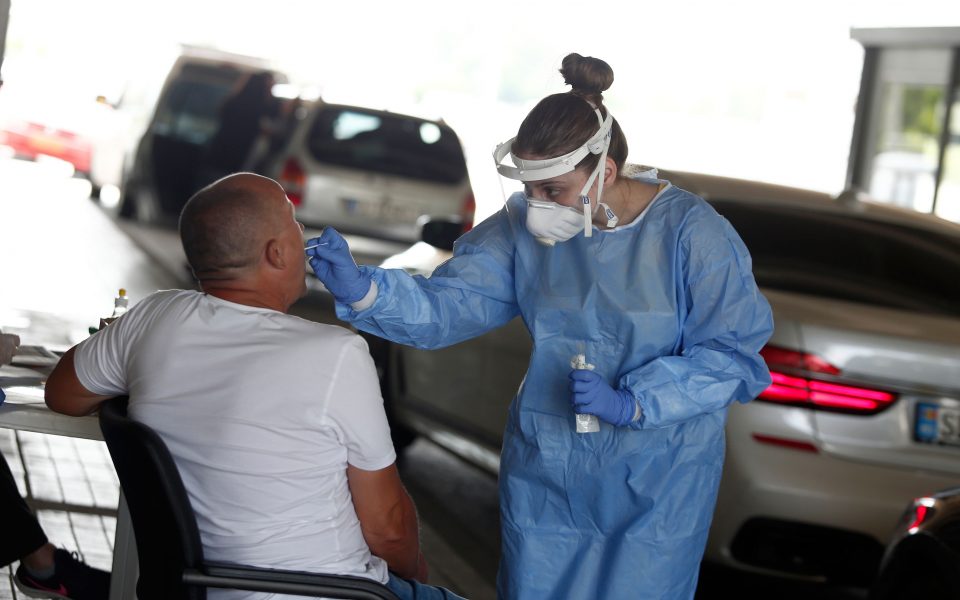Concern over unsourced Covid cases

Greek authorities and health officials are closely monitoring arrivals at the country’s borders amid growing concerns about an increase in imported cases of the coronavirus and are on standby to impose new restrictions if necessary.
Already the government has said that restrictions will be tightened at the Promachonas Greek-Bulgarian border crossing from 6 a.m. on July 14. Anyone on a non-essential trip will be forbidden entry unless they can present a negative Covid-19 test conducted up to 72 hours prior to arrival. That decision was taken on Friday following an emergency meeting of government officials and health experts called by Prime Minister Kyriakis Mitsotakis following mounting concern about an increasing number of tourists from Balkan countries testing positive for Covid-19.
If the trend continues along today’s lines, experts estimate that the number of imported cases of coronavirus will exceed 1,200 by the end of August. According to the National Public Health Organization, the first 10 days of July have already led to 196 cases of coronavirus being linked to foreign arrivals out of a total of 326 cases nationwide, a rate of 60 percent. In the last 10 days of June, 72 of the 294 cases were found to be imported, a much lower rate of 24.5 percent.
Health experts’ greatest concern however is the imported cases which are not traced and can lead to localized spikes in the virus. If unsourced cases – namely infections whose origin cannot be determined – increase to more than 50 a day, this would likely prompt authorities to impose stricter measures such as the obligatory use of protective masks in public areas, Kathimerini understands.
“When we took the decision to open the country to tourism between the end of May and early June, the epidemiological situation in countries like Germany, Italy, Serbia and Israel were very different to today,” Gkikas Magiorkinis, an assistant professor of hygiene and epidemiology at Athens University, told Kathimerini.





